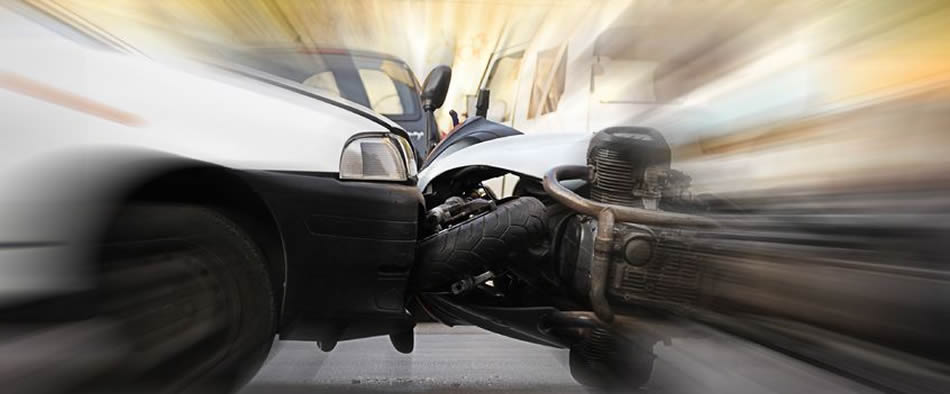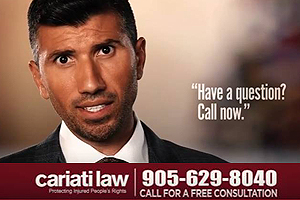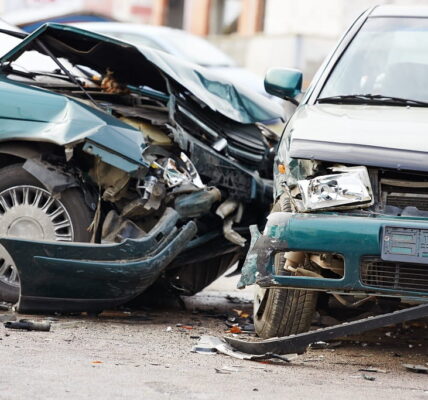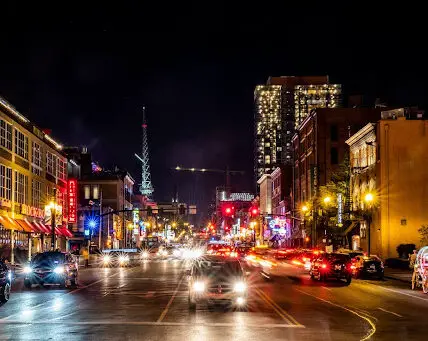Getting Back on Track After a Car Crash in Ontario

Source: himpro.ca
A fender bender or a head-on collision—it can completely mess with your plans, your budget, and your head. Life throws curveballs, and a car accident is certainly one of the big ones. This article will walk you through what happens when the unexpected happens on the roads of Ontario, Canada. We'll cover important things like your rights, responsibilities, and the steps to take when involved in a car accident.
Understanding Your Rights in an Ontario Car Accident
What are your rights after a collision?
- You have the right to know what happened, [the other person's liability]
- You have the right to your own health insurance.
- You deserve to be treated fairly by the insurance companies involved, and possibly even by the law enforcement.
- Seek help promptly [emergency first]
The Role of the Police in an Accident
- Accidents can feel incredibly confusing [especially a pile-up].
- Police can help sort through the chaos, gather info.
- Reporting to police is vital; sometimes you really need their investigation if it is serious injury.
- [Important]: Knowing the police report helps both in determining what happened and [if a possible lawsuit] arises.
The Importance of Gathering Information at the Scene
This part is important because it can really help with your case later,
- Exchange insurance and license details [essential steps].
- Document everything – take photos or videos of any damages, your car, [even the surrounding situation] and injuries if applicable.
- Write down what each person said at the scene and if there are witnesses, write down who the witnesses are [write it all down at that moment]
What to Do Immediately After a Car Accident
- Make sure everyone is safe first, immediately take any emergency situation to take care. (call emergency if you need to)
- If possible, move your car safely. (out of traffic if possible, avoid blocking).
- Document and assess damages to both cars and persons. (injury, property, everything possible to mention)
- Seek immediate help if anyone is injured. (first aid, if possible and call emergency service if injured)
- Never admit fault or apologize.
- Note everything – where it happened, the time, everything at that time and even days later!
Dealing with Insurance Companies in Ontario
Insurance Company Communication

Source: inlandempire-personal-injury-attorney.com
- Insurance claims can be challenging, be careful [what you tell insurance]!
- Communicate calmly, clearly. [Never raise your voice!]
- [Get it in writing!](Always ask to get all important discussion, conversation, decisions in writing with the insurer.)
Important Question to Ask Insurance Companies
- What coverage is available? Is the car insured properly?
- What's the next step in filing a claim?
- What is your role and their position to solve this problem.
Understanding Different Types of Insurance Coverage
- Liability insurance [pays for damages you caused to the other party], [Important!].
- Collision insurance [covers damages to your own car regardless of fault], [Also crucial].
- Comprehensive insurance [pays for your car damaged for reason beyond an accident like storms].

Source: derekwilsonlaw.ca
Finding a Car Accident Lawyer in Ontario
Finding a lawyer is important if your situation escalates into legal matter or for consultation, so that you are clear on your legal situation!
Considering Various Factors
- What level of expertise they have? Ask what their track record on similar cases is!
- Where they have practised, their cases/ success rate/experience [review their experience to learn more about them!], how many clients they have in the area?
- Legal fees [Important!: How they are paid; retainer fee]

Source: thealamlaw.com
Assessing Reviews and Recommendations
- Read online reviews to see if other clients have something positive/ negative things to share on a certain lawyer,
- Discuss possible fees upfront, the possible solutions they recommend for your car crash case.
Legal Considerations in an Ontario Car Accident Claim
What can cause accidents in the Ontario Roadways?
- Speeding, drunk driving or distracted drivers
- Poor road conditions or design issues (pot holes)
- Ignoring or poor understanding of road signs.
- Failing to notice their own surroundings. (looking at your phone/not looking where they're going/ talking on phone, etc).
- Poor judgment.
Who's to blame?
Identifying fault is important, particularly when insurance companies and possible lawsuits take place! Sometimes [the blame is shared!], it depends on the scenario. A lawyer can evaluate if that blame should fall under someone or needs a legal perspective or a fair outcome to both parties involved.
Navigating through Legal Procedures
- Legal procedures, for example court hearings. (understand how legal court cases and how it works.)
Seeking a fair settlement (outcome)
- Negotiation plays a key role when it comes to settlements in a lawsuit [you could end up settling], even sometimes you are trying to have fair settlements, in particular after the incident with other drivers or pedestrians
Proving Liability: Evidence
Key evidence
- Photos and videos (as we've mentioned earlier).
- Witness statements, statements from whoever it may apply.
- Police reports
- Medical records.
Dealing With Injuries and Pain After an Accident
Managing pain effectively
- Physical and emotional treatment can take longer than imagined. Seek timely support when needed.
- Document any pain that you are experiencing in the short and long run.
- Seek help from your family.
Medical Treatment and Documentation
- Thoroughly documenting medical records, visit records with a Doctor.
- Seek a prompt treatment of your injuries so that it does not escalate into long term pain or long-term impact

Source: cariatilaw.ca
Conclusion
This Ontario car crash situation guide has just started our long and ongoing learning journey; Hopefully this helped in preparing for one of those unexpected times. Being involved in a car accident is, quite literally, life-altering. Having some clarity and direction is vital!
Remember, the advice above shouldn't replace talking to a qualified legal professional who's actually licensed or practicing law! You need them, particularly when figuring out the best legal options after your crash! Seek proper assistance as soon as possible, for legal advice or clarification!
(Disclaimer: This article is for informational purposes only and does not constitute legal advice.)



